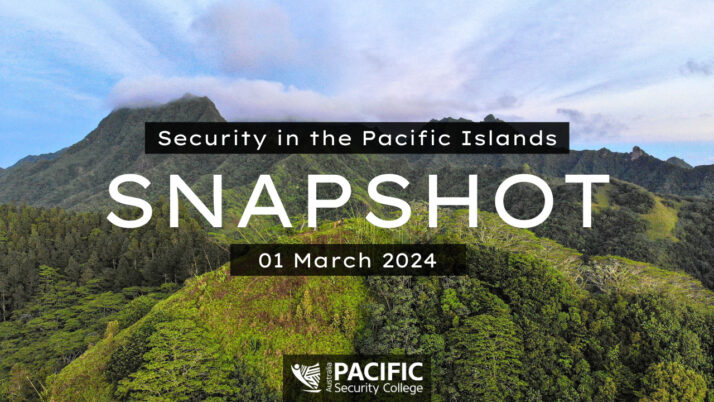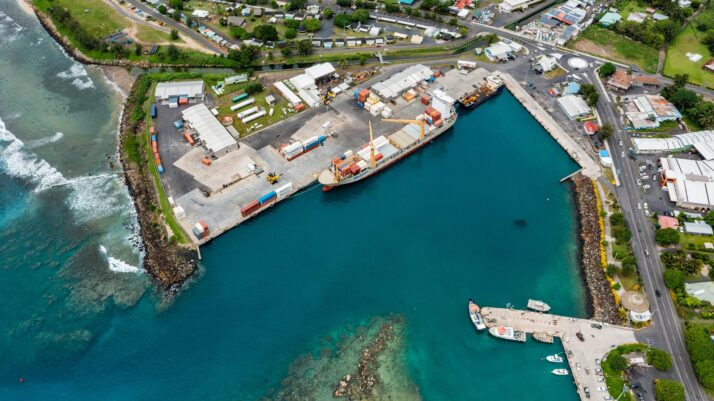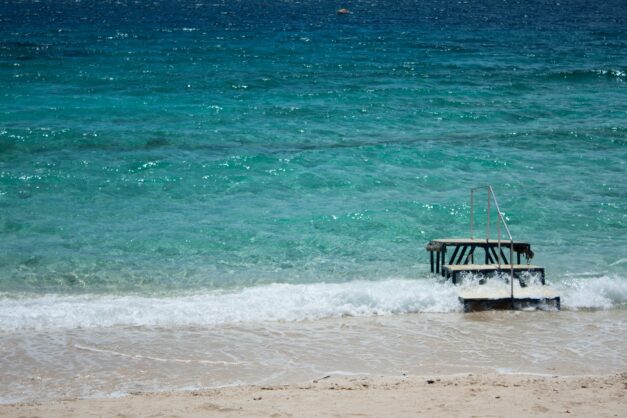The future of Pacific security
Beachcomber Beach, Fiji Photo by: Vince Veras
Meg Keen
After years toiling to build a regional framework of collaboration and partnership, Pacific nations are facing the ultimate collective test in responding to the coronavirus pandemic, Meg Keen, Director of Pacific Security College, writes.
Between 2015 and 2018, I conducted research on rapid urbanisation in some of the dense informal settlements around Honiara in the Solomon Islands. At the time, health was not high on the agenda, but comments from those settlements now bring into sharp relief the possible challenges ahead for Pacific Island countries, which, along with the rest of the world, suddenly face their biggest health challenge in a generation.
At that time, people in the settlements spoke of the city being a place to more easily generate income, access services, and support those in the family village. But in the face of COVID-19, these advantages are fading and the challenges of simply living and accessing food and services have taken over.
All across Asia and the Pacific, challenges to system sustainability and security are mounting. There is a tendency to focus on the most pressing threat; sometimes neglecting to consider the ripples it will send through the system.
Relationships, partnerships, and collaborative action are needed to deal with health security issues. In responding to the COVID-19 crisis, policymakers and leaders need to keep an eye on how actions today will ripple across social systems and affect other sectors and vulnerable people.
With the number of COVID-19 cases climbing in the Pacific Islands, few testing facilities, and health infrastructure and services limited, needs will be great — it will be relationships, knowledge sharing, and collaboration that will save lives. Now is the test of how regional collaboration works in practice.
Let’s not forget the vulnerable and the vital connections between us that can help strengthen a collective response to this challenge. Health security is an issue that cuts across sectoral boundaries and jurisdictions. Coordinated efforts nationally, among donors and internationally will be needed. The Pacific Islands Forum Secretariat (PIFS) and the Pacific Community have key roles to play in this.
Last year, the Pacific Security College (PSC) was established at The Australian National University to support and strengthen regional and national security through collaborative learning and capacity building efforts. To do this, it will examine and analyse how COVID-19 is impacting a range of Pacific Island security issues, from informal economies to border security.
Experts and regional leaders from around the region are being brought together to reflect on current Pacific Island trends, responses, and likely future trajectories. We encourage our contributors to analyse how actions today will affect the full range of security issues highlighted by the PIF Boe Declaration on Regional Security including climate, human, environmental, and traditional security issues.
PSC has consulted widely with many Pacific Island leaders across the region to tailor its activities to the region’s needs. Even before the recent spread of measles and COVID-19, leaders and agencies consistently put strengthening collaboration across government and health security at the heart of all high-priority security responses.
In the interviews, Pacific leaders emphasised the need for collaboration and consistency from the larger countries of the Pacific community. This is being borne out to some extent in the current crisis, with Australian, New Zealand, and the Chinese support for the COVID-19 response including greater monitoring and testing. To succeed testing kits need to get where they are most needed, medical personal be adequately trained and high standards of testing maintained; all have faced challenges in the early stages of deployment.
Security issues around the region are consistently seen by leaders as part of a broader social system, not restricted to one sector. COVID-19 is a national security threat, not only because of its deadly consequences, but because of system interconnectivity, an idea captured by the concept of the ‘tipping points’ — points at which the system can transform unpredictably in response to multiple stressors, for better or worse.
The steps that Pacific governments are taking to combat COVID-19 could create impacts that fundamentally reshape the region. Policymakers around the region need to monitor and reflect on the impacts of policies across the system as a whole. That means providing a platform to hear from the ground what is going on.
For example, as flights and freight face heavy restrictions, the flow of goods to meet basic needs will be affected. Many in the Pacific are self-sufficient, but, in cities, people rely on food supply chains that link them to peri-urban and regional areas. The shutting or limiting of food markets in cities to reduce disease spread causes other challenges relating to food security, access to cash, and the potential for law and order difficulties.
While acting to contain COVID-19, policymakers need to keep an eye on what additional responses will be needed to protect the vulnerable. UN Women and others have expressed concerns for women at risk from domestic violence or other vulnerabilities as women’s crisis centres struggle to provide services and mobility is restricted.
COVID-19 will also have a significant impact on traditional security challenges. These threats may transform in future, but they will not recede from the Pacific. They include a likely increase in cybercrime and misinformation. The challenge of managing borders will also be increasingly complicated by health security responsibilities in the crisis, and the disruption of traditional border accesses.
Strong leadership is needed, with countries such as Papua New Guinea and Fiji increasing testing and attempting to restrict movement, but messaging can become confused if senior ministers are not consistent in their public addresses.
Given limited resources available in most Pacific Island countries, regional agencies have a central role to play.
Groupings that have served the region well in the face of other threats such as climate change and ocean governance may now need to be leveraged again to ensure countries get the support they need — there is strength in working together.
Now more than ever, the Pacific needs platforms for sharing expertise and working collaboratively, which is why Policy Forum is launching a new Pacific: In Focus section, produced in partnership with the Pacific Security College and ANU Department of Pacific Affairs.
For this, we are interested in your stories. Bringing together expert opinions, the section will examine the problems facing the region, both now, in the face of a pandemic, and into the future, when the crisis has passed. In doing so, we hope to address the central question the Pacific is facing: How can policymakers work towards a more secure future?
We hope tackling this question, whether it be through articles, podcasts, or videos, will better connect Pacific Island friends and family with expert research, analysis, and opinion on the future of the region.
We’d love to hear from you if you’re interested in contributing to this Pacific: In Focus section. If you are, please do so here.
Read more blogs by Meg Keen here.
More Stories

Security Snapshot - 1 Mar 2024
Pacific Security Snapshot | 01 March 2024
The security stories shaping the region ➣ Pacific Islands Leaders Meeting (PALM) to be held in Tokyo in July 2024 ➣ 2023 warmest year on record, globally ➣ Elections across the Pacific prompting changes to diplomatic relations and security arrangements ➣ Extractive industries booming ➣ Environmental conservation efforts ongoing ➣ PNG riots shed light on…

Blog - 25 Oct 2023
Australia must play a key role in the Pacific’s push to decarbonise shipping
There is an opportunity for Australia to work with Pacific islands to invest in new technology and take a leadership role in the decarbonisation of shipping in the region. Pacific leaders have stated their priority to transition to a fossil fuel free Pacific. Collectively they recently failed at getting the International Maritime Organisation (IMO) to…







